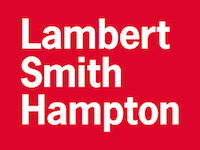



For our last graduate campaign we received around 206 applications. Part of the initial application process required that applications would only be considered if they had completed the video interview element. Of the 206 applications 88% of applicants did so, which automatically cut down the pool of eligible candidates. Whilst this was initially a concern, we soon realised that the overall quality of the applications left was very good and the reduced numbers meant we could complete the screening process far quicker. So it acted as an automatic filter for us.
The overall quality of hire has improved because now we are able to progress the strongest candidates to the next stage of the process knowing that they will generally be of a high standard. For the first time we are able to assess a candidate’s communication skills, how they are able to think on their feet and answer questions under pressure. We can also get an idea of their personality and general energy and enthusiasm for the role before they even step foot in the interview! This visual element combined with the CV ensures we are only taking the best candidates forward!
It's also easy for candidates as they can record the interview from their own smart devices or laptops at their own convenience.

